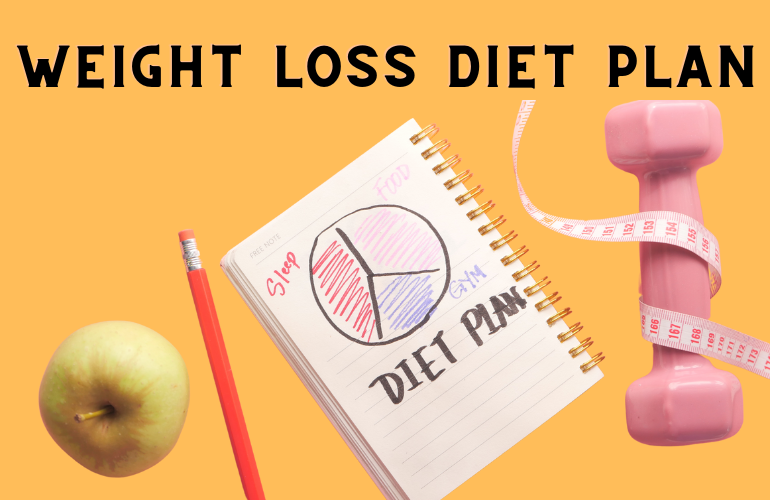Different Types of Weight Loss Diets
There are various weight loss diets. While some may be healthy, others aren’t.
The Mayo Clinic Diet is an example of a healthy eating plan. It encourages individuals to fill their plates with fruits, vegetables and lean meats while limiting sugary treats and specific fats.
Unbalanced, Hypocaloric Diets
To achieve and sustain optimal body weight and health, it’s necessary to consume a diet with foods from all major food groups in an ideal ratio – one which provides proteins, fats, carbohydrates, fibre vitamins and minerals in adequate proportions – in a balanced fashion. Anything less can lead to obesity or malnutrition with serious consequences.
Some individuals follow unbalanced diets, known as fad diets, in an attempt to lose weight quickly. While such plans promise fast weight loss without providing adequate nutrients to support that loss, as well as contributing to obesity and other health concerns.

Other people follow a hypocaloric diet. A hypocaloric diet means consuming fewer calories than your body needs to maintain its weight and is commonly used as an aid to losing weight or controlling their blood sugar levels, particularly for diabetics. Though rapid weight loss often occurs quickly with such diets, most often they fail to sustain lasting change and many end up regaining all or part of what was lost along with additional pounds over time.
Unbalanced and hypocaloric diets can create havoc with hormones responsible for hunger regulation, energy metabolism and blood sugar regulation, as well as trigger an abundance of inflammation-promoting substances which activate pro-inflammatory pathways within the brain and other tissues – potentially leading to chronic diseases and even leading to their progression.
Hypercaloric diets may disrupt the normal functioning of your digestive system, leading to diarrhea or constipation. They may also lower energy levels leaving you feeling fatigued and lethargic; and disrupt the hypothalamus which controls appetite and sleepiness.
An effective hypocaloric diet is crucial to maintaining a healthy bodyweight and optimal health. Not only can it promote weight loss, but it may also prevent cardiovascular disease and cancer, regulate high blood pressure and cholesterol levels, manage symptoms of depression and anxiety and even help improve symptoms associated with ADHD. Therefore it is advisable to seek medical advice before embarking on any new diet plan.
Volumetrics Diet
The Volumetrics Diet was devised by nutrition scientist Barbara Rolls to promote safe weight loss through eating low-calorie density foods that help you feel full, with the goal of producing gradual but sustained weight loss. It relies on switching your eating habits from high-caloric items such as desserts or fast foods towards fruits, vegetables, water and lean proteins; starting meals off right with soup or salad helps fill you up before eating more calories!
Diets consist of several categories. Category 1 foods include those high in water and fiber content like fruits, vegetables and soups; category 2 items should be eaten moderately such as skinless chicken and brown rice, while only small portions are required from categories 3 or 4 foods like fatty fish or nuts.
Dieting with this approach emphasizes satiety rather than counting calories, though this type of dieting requires careful planning and monitoring in order to follow a balanced meal plan. Furthermore, it can be costly as you buy many fresh fruits and veggies, healthy fats such as olive oil and nuts/nut butter to stay on track with this plan.
One major concern is that it’s easy to become obsessed with calculating caloric density of food, leading to unnecessary restrictions on daily lifestyle. Working with a registered dietitian who can design a sustainable long-term volumetrics-style eating plan and provide necessary nutrients is key. Integrate physical activity into your lifestyle – burning extra calories will speed up weight loss! Kristin Kirkpatrick, MS, RDN is a registered dietitian who specializes in finding healthy and sustainable ways of eating for her clients. As an advocate of real food consumption and an instructor of cooking/culinary arts courses at various institutions. You can follow Kristin @fuelwellwithkrissy
Low-Carbohydrate Diets
Low-carbohydrate diets have long been touted as an effective means to manage blood sugar and promote weight loss, yet their popularity seems to come and go, often leaving dietitians scrambling to assess client needs and determine whether an eating plan can be sustained.
Low-carbohydrate diets limit carbs and encourage the body to turn fats into energy through ketosis, or fat conversion into energy. Once glycogen stores run dry, ketones produced by liver cells are then turned into energy through muscle tissue metabolization. When eating an extreme low-carbohydrate and high protein/fat diet this metabolic process accelerates quickly.

Studies have revealed that low-carbohydrate diets can be just as effective at weight loss and improving glycemic control in diabetes as traditional low-fat diets, with evidence pointing toward their use being equal or even superior in some instances. Furthermore, such a diet has been demonstrated to lower triglyceride levels and improve dyslipidemia among individuals diagnosed with metabolic syndrome; additionally it reduces insulin resistance which is linked to nonalcoholic fatty liver disease, an increasingly prevalent chronic liver condition.
A typical low-carbohydrate diet emphasizes eating foods rich in proteins and fats such as meat, fish, eggs and nuts while restricting starchy vegetables like potatoes and grains to avoid too much carb intake. Fruit may also be included occasionally. A variation on this is the slow carb diet which focuses on including foods from all food groups on most days while permitting one “cheat day” per week to increase carb consumption.
Low-carbohydrate diets have many advantages, yet their long-term effectiveness remains unknown. While short-term trials have shown them to lead to greater weight loss than traditional low-fat diets, they do not appear to be as successful at maintaining weight loss over time.
Dietitians must carefully assess clients for a low-carbohydrate diet before prescribing one, taking into account factors like nutritional history and other influences such as stress or physical activity levels that might alter its outcome, like stress. Carbs provide many people with energy sources; eliminating them from one’s diet could leave one feeling weak and hungry as well as experiencing side effects such as headaches or fatigue from abrupt changes to eating patterns.
High-Fat Diets
Many people conflate a high fat diet with low-carb eating; however, the ratio between calories derived from fat, carbohydrates and proteins makes the distinction clear.
A diet rich in fats includes foods containing between 40% and 45% of daily caloric intake from fats – both saturated and unsaturated fats – such as butter, fatty cuts of meat, nuts and seeds. When on such a high fat diet, your body uses its stored fat reserves for energy and production of ketones to fuel various parts of your body – this means less chance for additional caloric consumption as your energy requirements decrease significantly.
Carbs, on the other hand, quickly turn into glucose in your blood for use or storage; when your body has more glucose than it can use at once, any excess is turned into fat cells – hence why high-fat diets typically include less carbs resulting in weight loss.
Diets that restrict fat to less than 30% of daily caloric intake are often recommended to those seeking to lose weight or for medical purposes, including metabolic control and protection against heart disease and diabetes. It’s important to remember that your body does need some fat for function – particularly unsaturated omega-3 fats from fish as well as some saturated ones – in addition to some saturated ones.
Japanese tend to live longer and experience lower rates of obesity, heart disease and type-2 diabetes than westerners due to their healthy eating habits. Their diet typically consists of plenty of fresh fruit and vegetables as well as fish and unprocessed foods; animal proteins and refined sugar are limited while heart-healthy fats and fiber content increase significantly – these characteristics combine together into what’s known as an adrenal fatigue diet and can help your body function optimally without restricting weight loss efforts.


